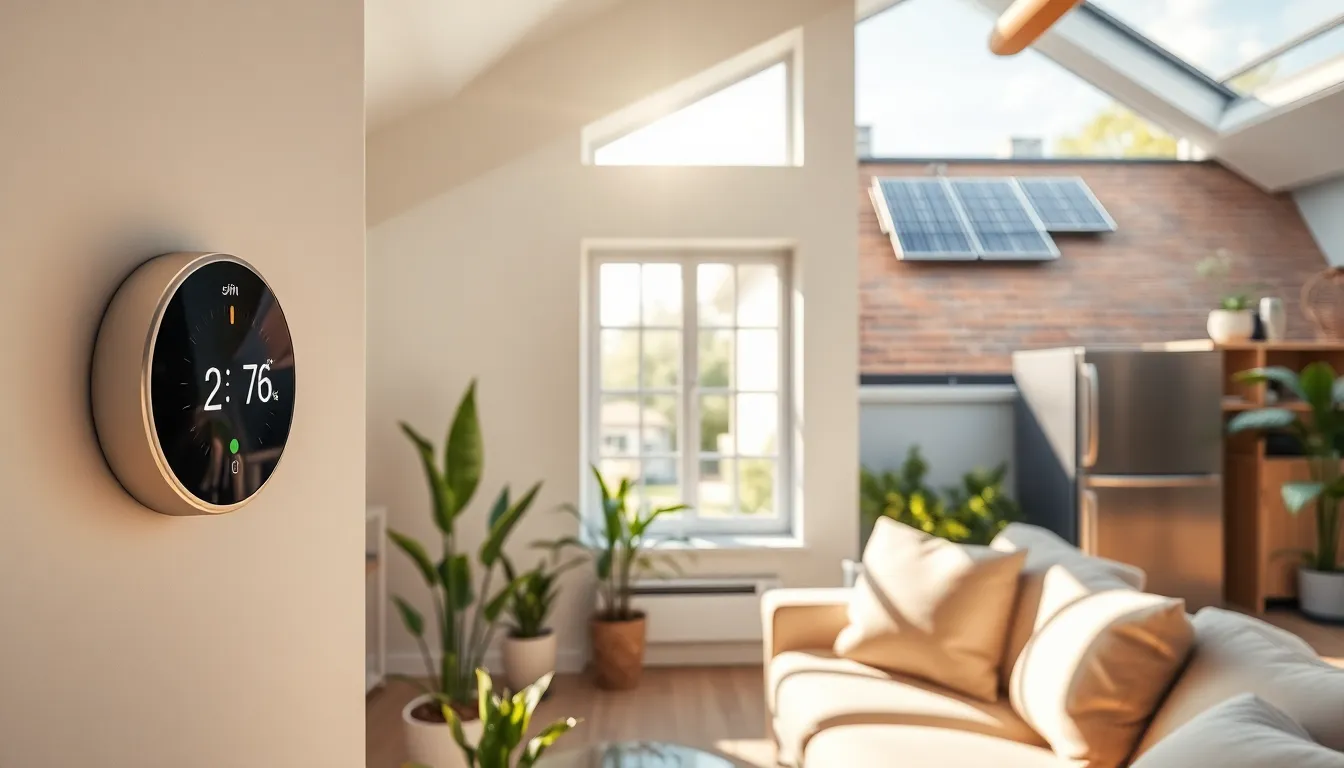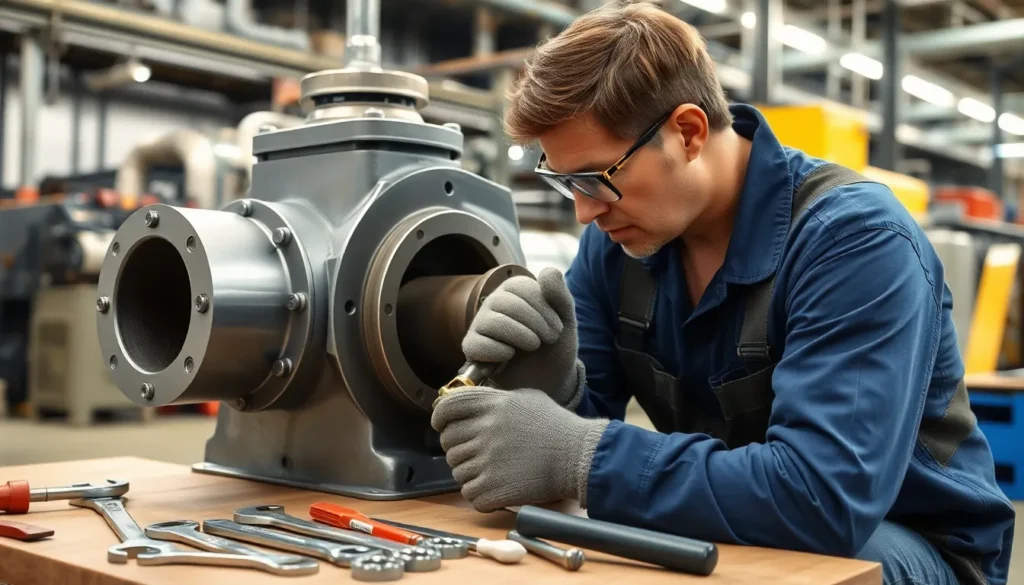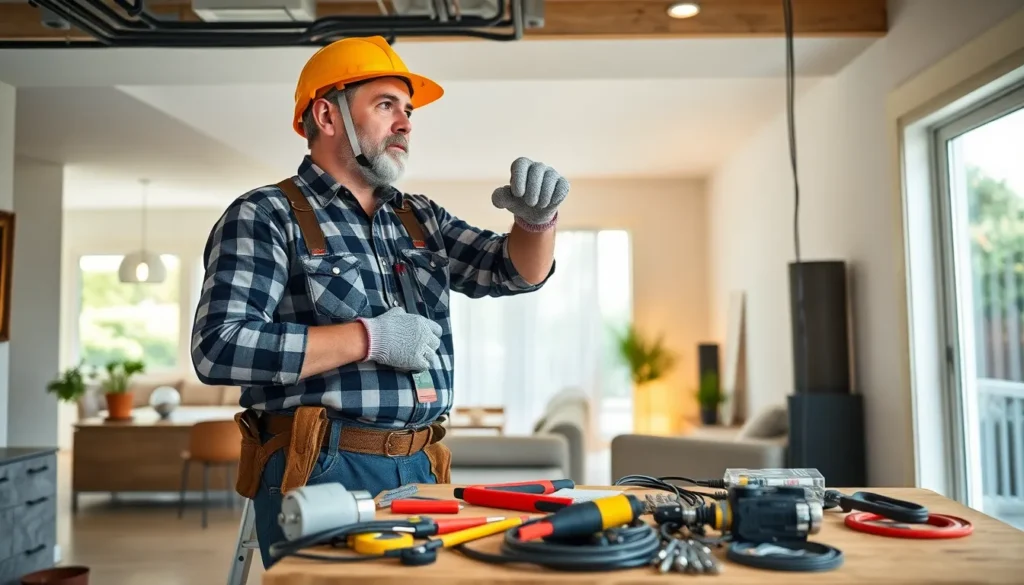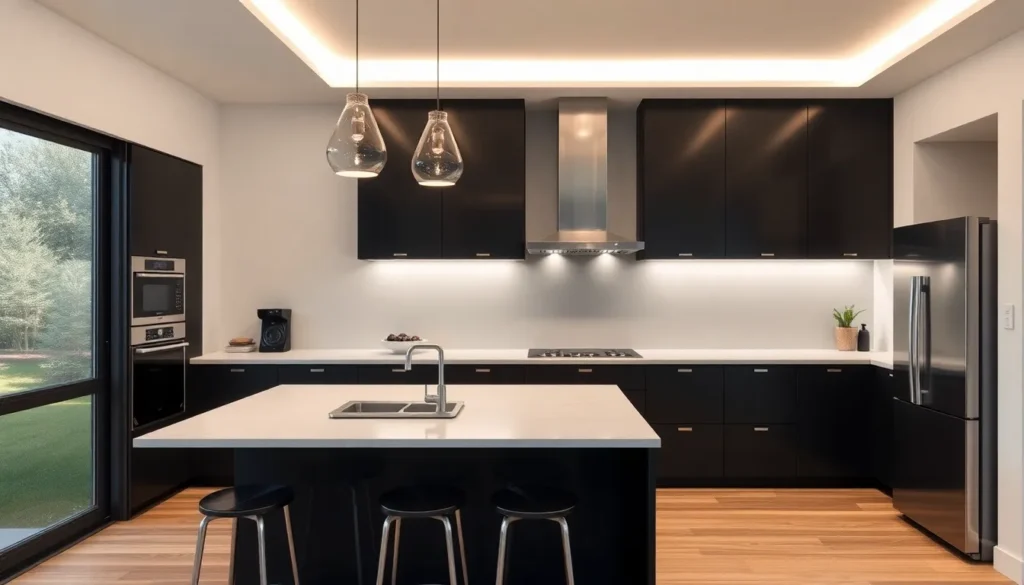In today’s world, home efficiency systems have become essential for homeowners looking to reduce energy consumption and lower utility bills. These innovative solutions not only enhance comfort but also promote sustainability, making them a smart choice for eco-conscious individuals.
From smart thermostats to energy-efficient appliances, these systems are designed to optimize every aspect of a home. They offer real-time data and insights, allowing homeowners to make informed decisions about their energy usage. As technology advances, the potential for increased efficiency continues to grow, making it easier than ever to create a more sustainable living environment.
Table of Contents
ToggleOverview of Home Efficiency Systems
Home efficiency systems focus on optimizing energy use to enhance comfort, sustainability, and cost savings. These systems encompass a variety of tools and technologies designed to monitor, manage, and reduce energy consumption.
Smart Thermostats
Smart thermostats adjust heating and cooling settings automatically, learning user habits to optimize energy use. Examples include the Nest Learning Thermostat and ecobee SmartThermostat. These devices provide real-time data, allowing homeowners to track energy usage patterns.
Energy-Efficient Appliances
Energy-efficient appliances consume less energy than standard models, significantly lowering utility bills. Notable examples are Energy Star-rated refrigerators, washing machines, and dishwashers, which use advanced technology to minimize power consumption without sacrificing performance.
Home Automation Systems
Home automation systems centralize control over various smart devices, enhancing overall energy efficiency. Platforms like Google Home and Amazon Alexa enable users to manage lighting, security, and HVAC systems through voice commands or mobile apps, streamlining operations to conserve energy.
Solar Energy Solutions
Solar energy solutions harness renewable energy, reducing reliance on non-renewable sources. Installing solar panels on rooftops decreases electricity bills and can result in tax incentives or rebates. Battery storage options, such as the Tesla Powerwall, optimize energy usage by storing excess solar energy for later use.
Energy Monitoring Systems
Energy monitoring systems utilize smart meters to provide detailed insights into energy consumption. Tools like Sense or Neurio help identify energy inefficiencies and track usage in real-time, empowering homeowners to make informed decisions about reducing consumption.
Insulation and Sealing
Proper insulation and sealing improve a home’s energy efficiency by reducing heat transfer. Upgrading insulation materials or sealing gaps in windows and doors minimizes the energy required for heating and cooling, leading to substantial savings on energy bills.
HVAC Efficiency Improvements
Upgrading HVAC systems to high-efficiency models can significantly lower energy consumption. Variable-speed furnaces and high-SEER (Seasonal Energy Efficiency Ratio) air conditioners provide superior climate control while using less energy, reflecting advancements in heating and cooling technology.
These components collectively enhance home efficiency, contributing to a sustainable living environment while reducing energy costs. As technology continues to evolve, the integration of these systems offers homeowners greater control over their energy usage, facilitating a shift towards smarter living.
Benefits of Home Efficiency Systems

Home efficiency systems provide numerous advantages, particularly in energy savings and environmental impact. These systems enhance comfort while promoting sustainable practices.
Energy Savings
Energy savings represent a primary benefit of home efficiency systems. Smart thermostats adjust heating and cooling based on user habits, leading to savings of up to 30% on energy bills. Energy-efficient appliances consume significantly less electricity, often up to 50% less than standard models. Furthermore, upgrading insulation can reduce heating and cooling costs, minimizing energy waste. Solar energy systems not only generate power but may also create financial incentives through tax credits and rebates. Homeowners can track consumption patterns with energy monitoring systems, enabling proactive adjustments to maximize savings.
Environmental Impact
Environmental impact plays a crucial role in the benefits of home efficiency systems. By using less energy, these systems contribute to decreased greenhouse gas emissions. For instance, energy-efficient appliances and solar panels help reduce reliance on fossil fuels, diminishing their ecological footprint. Improved insulation minimizes heat transfer, leading to lower energy demand and reduced natural resource use. Additionally, smart home automation allows for optimized energy usage, further supporting a sustainable environment. Collectively, these technologies promote responsible energy consumption, fostering a healthier planet for future generations.
Types of Home Efficiency Systems
Home efficiency systems encompass various technologies designed to optimize energy use and enhance comfort within residential spaces. Below are some key types of systems that contribute to overall home efficiency.
Heating and Cooling Solutions
Heating and cooling solutions play a critical role in maintaining indoor comfort and optimizing energy consumption.
- Smart Thermostats adjust heating and cooling based on user patterns, offering savings of up to 30% on energy bills.
- High-Efficiency HVAC Systems consume significantly less energy than traditional models, providing enhanced climate control without excessive costs.
- Zoned Heating and Cooling allows targeted temperature adjustments for individual rooms, maximizing comfort and minimizing waste.
- Geothermal Heat Pumps utilize the earth’s stable temperature to provide efficient heating and cooling, reducing reliance on fossil fuels.
Insulation Technologies
Insulation technologies are essential for minimizing heat transfer and improving a home’s energy efficiency.
- Spray Foam Insulation provides an airtight seal, reducing air leaks and enhancing thermal performance compared to traditional insulation materials.
- Reflective Insulation reflects radiant heat away from living spaces, particularly effective in warmer climates for cooling cost reductions.
- Blown-in Insulation offers superior coverage in hard-to-reach areas, optimizing thermal resistance and energy savings.
- Insulated Doors and Windows prevent heat loss while maintaining comfort, as they typically feature multiple panes and energy-efficient coatings.
Integrating these heating and cooling solutions along with advanced insulation technologies forms a comprehensive approach to home efficiency, contributing to significant energy savings and environmental benefits.
Smart Home Integration
Smart home integration enhances the efficiency of home efficiency systems by centralizing control and providing real-time insights. It connects various devices to create a cohesive, user-friendly experience for homeowners.
Home Automation Systems
Home automation systems centralize the management of smart devices, allowing homeowners to control lighting, heating, cooling, and security features from one interface. These systems facilitate automated settings based on user preferences and schedules, leading to optimized energy use. For example, smart thermostats can adjust temperatures based on occupancy or time of day, which can reduce energy consumption by as much as 30%. Integration with voice assistants further simplifies operations, enabling hands-free control.
Monitoring and Control Tools
Monitoring and control tools offer homeowners detailed insights into their energy consumption patterns, allowing for informed decision-making. Energy monitoring systems track usage in real-time, identifying areas for potential savings. Smart plugs and switches can automate the control of individual devices, turning them off when not in use. Additionally, mobile applications provide remote access, enabling homeowners to manage systems while away from home. Through this combination of monitoring and control, significant reductions in energy bills and environmental impact become achievable.
Cost Considerations
Cost considerations play a crucial role in evaluating home efficiency systems. Initial investments and long-term savings significantly influence homeowners’ decisions.
Initial Investment
Initial investments for home efficiency systems vary based on technology and scale. Homeowners can expect costs for smart thermostats to range from $100 to $300, while high-efficiency HVAC systems can exceed $4,000, including installation. Energy-efficient appliances, such as refrigerators or washing machines, might have price premiums ranging from 10% to 30% compared to standard models. Solar panel systems can require investments of $15,000 to $30,000 before incentives. Proper budgeting ensures that homeowners consider both immediate expenses and potential financing options.
Long-Term Savings
Long-term savings from home efficiency systems significantly offset initial costs. Smart thermostats may reduce monthly energy bills by up to 30%, leading to savings of approximately $180 annually. Energy-efficient appliances can save homeowners around $200 per year on electricity costs. Combining insulation upgrades and HVAC system improvements can enhance overall savings by up to 50%, contributing to reductions of several hundred dollars annually. Additionally, solar energy systems can yield savings between $600 and $2,000 each year on electricity costs, depending on energy usage and local incentives. Financial evaluations demonstrate substantial returns on these investments, enhancing both economic and environmental benefits.
Home efficiency systems represent a transformative approach to modern living. By integrating smart technology and energy-efficient solutions, homeowners can significantly reduce their energy consumption and lower utility bills. The combination of smart thermostats, energy-efficient appliances, and home automation not only enhances comfort but also promotes a sustainable lifestyle.
Investing in these systems may require an initial outlay, but the long-term savings and environmental benefits are undeniable. As technology continues to advance, the potential for even greater efficiency and savings will only grow. Embracing home efficiency systems is a step towards a more responsible and economically sound future for homeowners and the planet alike.









